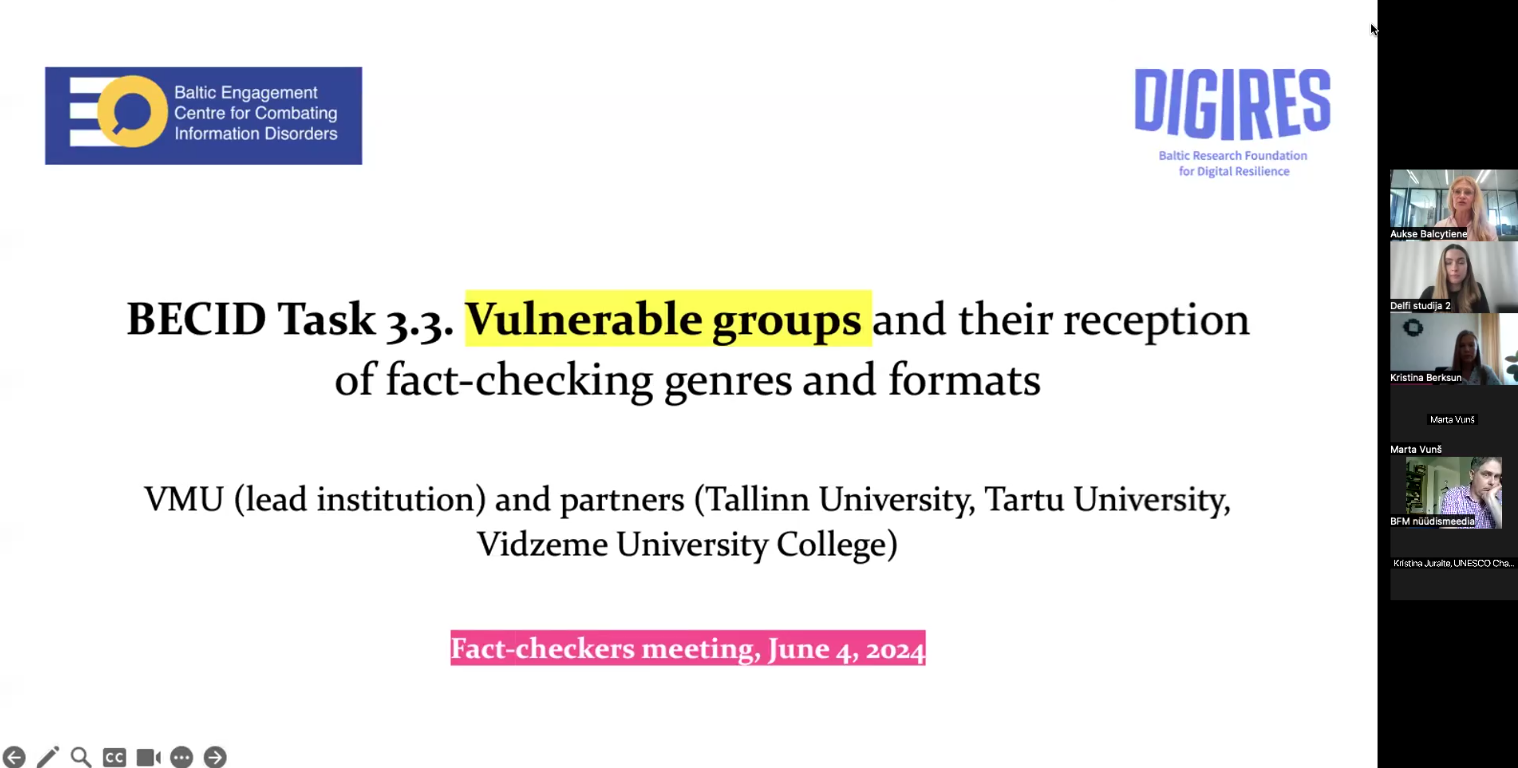 Back
Back

On 4th of June, representatives from Lithuania, Latvia and Estonia presented and discussed the initial results of a survey at a meeting of the BECID project (Baltic Engagement Centre for Combating Information Disorders) to find out how different groups in the Baltic States perceive their digital skills, their ability to identify misinformation, their trust in information sources and their familiarity with fact-checking.
The survey was carried out by a team of researchers from Vytautas Magnus University (Lithuania), Vidzeme University of Applied Sciences (Latvia) and University of Tartu (Estonia).
Around 100 young students were interviewed in Lithuania, around 200 teachers and librarians in Latvia and around 500 respondents from civil resistance organisations in Estonia.
The results of the initial survey showed that respondents from different social groups in all three Baltic States often do not know and are unable to define what fact-checking is. Also, although many respondents in all Baltic countries indicated that the source of information was important to them, they were not concerned about whether the information content was paid for or sponsored.
According to Auksė Balčytienė, the Chief Investigator of DIGIRES association, the data from the survey in Lithuania revealed a significant level of concern about the prevalence of disinformation, but there were differences in how respondents perceived and defined it.
“Although many of the students surveyed feel confident about their ability to identify false information and trust their ability to assess the credibility of information on the internet, almost half of the respondents do not check the source of the information they find on the internet if they find the content useful,” said A. Balčytienė.
According to researcher Jānis Buholcs, a survey conducted in Latvia showed that as many as 40 percent of teachers and librarians surveyed are not familiar with fact-checking by the media, and associate with misinformation, for example, public coverage of the LGBT+ community, the war in Gaza, and Israel’s action and communication.
The general discussion that followed the presentation of the initial results of the survey highlighted the challenges posed by the lack of knowledge on fact-checking and misinformation.
According to Aistė Meidutė, a journalist, fact-checker, and editor of Delfi’s “Lie Detector”, who took part in the presentation of the survey results, misjudging one’s own abilities is one of the main challenges: it is often pretended that people are aware of fact-checking, but in reality, they are lacking knowledge.
Ieva Ivanauskaitė, Delfi Business Development Manager, highlighted concerns about the echo chamber phenomenon: people are mainly interested in information that corresponds to their preconceptions. According to I. Ivanauskaitė, this trend complicates the provision of accurate information and the fact-checking process: there is a growing distrust of sources that contradict different perspectives of people.
The survey and the discussion of its results in the three Baltic States will continue.
Text author – Austėja Vaičiulevičiūtė